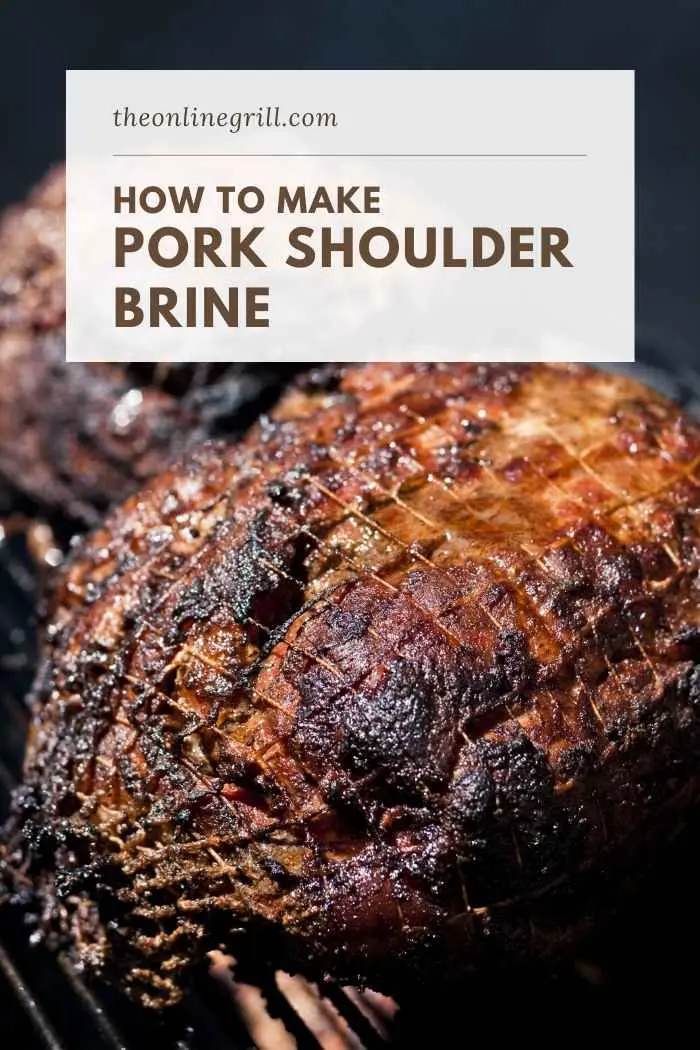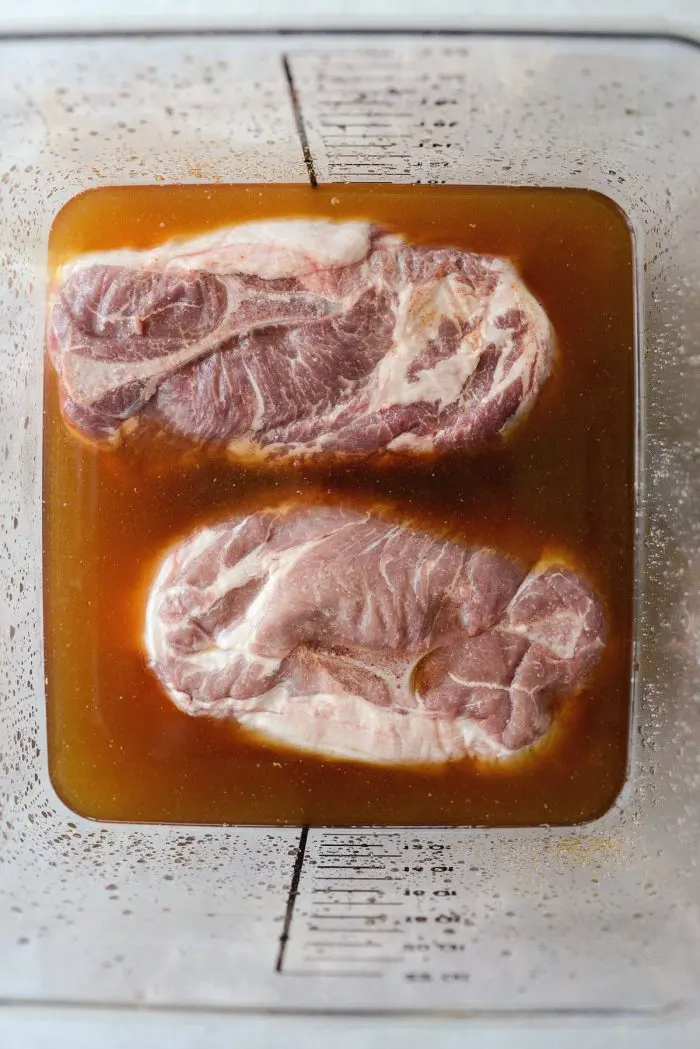When it comes to smoking pork shoulder, there is a debate among pitmasters about whether or not to brine the meat before smoking it. Some argue that brining is essential for flavor and moisture retention, while others believe that it is unnecessary and can even negatively affect the texture of the meat. In this article, we will explore both sides of the argument and help you decide whether or not to brine your smoked pork shoulder.

The Case for Brining
Brining involves soaking the pork shoulder in a saltwater solution, often with additional herbs and spices, for a period of time before smoking. Proponents of brining argue that it enhances the flavor of the meat and helps it retain moisture during the smoking process.
When the pork shoulder is brined, the salt in the solution helps break down the muscle fibers, allowing the meat to absorb more moisture. This results in a juicier and more tender final product. Additionally, the flavors from the brine can penetrate the meat, adding depth and complexity to the overall taste.
Brining can also help reduce the risk of the meat drying out during the long smoking process. The salt in the brine helps to denature the proteins in the meat, which allows it to retain more water. This can be especially beneficial if you are smoking a leaner cut of pork shoulder.
The Case against Brining
Despite the benefits that brining can bring, there are some pitmasters who argue that it is unnecessary and can even have negative effects on the final result.
One of the main concerns is that brining can oversaturate the meat with salt, resulting in an overly salty taste. This can be especially problematic if you are using a pre-brined or seasoned pork shoulder, as it can lead to an overpowering flavor.
Another issue is that brining can sometimes lead to a mushy texture in the meat. The salt in the brine can break down the proteins too much, resulting in a softer consistency. This is particularly true if the pork shoulder is brined for too long or if the brine is too concentrated.
Additionally, some argue that the flavors from the brine can overpower the natural taste of the pork shoulder. If you prefer a more pure and unadulterated flavor, then skipping the brining step may be the way to go.
So, Should You Brine?
The decision of whether or not to brine your smoked pork shoulder ultimately comes down to personal preference. If you enjoy the added flavor and moisture that brining provides, then it may be worth giving it a try. However, if you prefer a more natural taste and texture, then skipping the brining step is perfectly fine.
It's important to note that even if you choose not to brine, there are other ways to enhance the flavor and moisture of your smoked pork shoulder. Using a flavorful dry rub, basting the meat during the smoking process, and properly resting the meat after smoking can all contribute to a delicious and tender final result.
- What is brining?
- How long should I brine my pork shoulder?
- Can I brine a pre-seasoned pork shoulder?
- Can I over-brine my pork shoulder?
Brining is the process of soaking meat in a saltwater solution to enhance flavor and moisture retention.

The recommended brining time for pork shoulder is around 12-24 hours.
Brining a pre-seasoned pork shoulder can result in an overly salty taste, so it's generally not recommended.
Yes, over-brining can lead to a mushy texture in the meat. It's important to follow the recommended brining time and concentration.
In conclusion, the decision of whether or not to brine your smoked pork shoulder is a matter of personal preference. Both methods have their pros and cons, so it's up to you to decide which approach suits your taste and desired outcome. Happy smoking!
If you want to know other articles similar to To brine or not to brine: smoked pork shoulder debate you can visit the Smoking category.


Related Articles